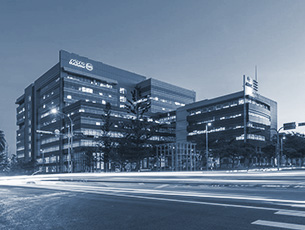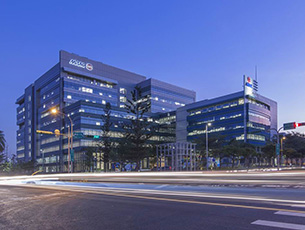Supply Chain Sustainability Management
|
For the CSR of the suppliers, the Company requests the suppliers to perform not only the quality and operation audits, but also the RBA audits that cover employee ethics, environmental health and safety, etc., with the improvement measures taken for the defects, if any, within a specified period. |
 |
New suppliers must pass the supplier evaluation and comply with the supplier code of conduct. If a supplier is found to have any behaviors that could negatively impact the environment or society while the impact is mild, the supplier will be asked to make immediate improvement and provide the plan and schedule, which is a means to ensure that they adopt the necessary improvement measures; if a supplier is found to have such behaviors that amount to serious non-compliance, the partnership with it might, upon the Company’s internal assessment, be terminated to protect the rights of the stakeholders.
The essential certifications that the key suppliers should have are shown below:
- Material suppliers related to the manufacturing process: Must pass the ISO 9001 quality management system certification
- Contractors of plant affairs and related operations: Must obtain the ISO 45001 occupational health and safety management system certification
- Local suppliers: Must obtain the valid factory registration certificate issued by the local government in accordance with the business category as well as ISO 14001 environmental certification
The Company also makes use of the supplier management platform e-SCM to ask the suppliers to provide test reports on the environmental specifications of products such as HSF (Hazardous Substance Free), so as to ensure that the products meet the RoHS requirements. With regard to the conflict mineral issues, promptly requesting the suppliers to ensure the compliance of the supporting materials offered thereby for proper source management in the supply chain in response to the RBA’s Responsible Minerals Initiative (RMI) while meeting the requirements of the customers.
|
Conflict Mineral Policy |
|---|
The “conflict mineral purchasing policy” is part of the supplier green product management of the Company. We achieve “management at source” by implementing investigations of smelters, and investigate all raw materials annually purchased for use in the processes based on the CMRT / EMRT survey questionnaire for the non-use of conflict minerals, to understand whether the materials contain conflict minerals and where they are sourced from. These ensure that the Company and its suppliers abide by relevant regulations with utmost effort. In 2022, MiTAC conducted investigation on 340 suppliers and compiled the profits on 352 mining companies in order to ensure that the suppliers of the Company and the Group comply with relevant requirements.
 |
In addition, in response to the dynamically updated announcement of compliant smelters on the RMI website and the requirements of the customers, 21 questionnaire surveys were undertaken, and responses were made to the customers for 58 times and to the suppliers for 223 times. 35 smelters were eliminated. |
|
|
Restrictions on the Use of Hazardous Substances and Management |
|---|
|
MiTAC Product Environmental Management and Regulations |
To produce eco-friendly products, all parts, components, and materials comply with the international regulations, such as EU directives including RoHS recast, WEEE recast, REACH, POPs, Section 6(h) of TSCA and China VOC and Measures for the Control of Pollution from Electronic Information Products. We also request the supply chain to strictly comply with the MiTAC Product Environmental Management Specifications (GP-1-00001). Through green supply chain management and hazardous substance management, MiTAC is able to provide products with low toxicity and low pollution, in turn minimizing hazards to the environment and people's health.
|
Establishment of Green Product Management Platform |
MiTAC has created a green product management platform-eGP System, and high-effficiency suply chain management system-eSCM System, where cross-platform collaboration is adopted to allow suppliers to declare the status of hazardous substances within components, upload third-party testing results, and respond to customers about green management related information instantaneously.
eGP and eSCM platforms ensure that our products comply with the latest environmental regulations (regional and client restricted), in turn making MiTAC’s green product management system more stringent and efficient. Qualified and capable suppliers are selected to supply electronics and components that comply with environmental protection regulations in order to improve competitiveness, customer trust and satisfaction.


Suply Chain Management System- eSCM System |

Green Product Management Platform - eGP System |
|
Incoming Quality Control |
- Provides green products with low toxicity and low pollution: Supplier design, manufacturing and management are reinforced through upstream supply chain management.
- Utilize eSCM/eGP to communicate with suppliers and manage green products and components: Ensure compliance with international and customers’ environmental regulations.
- Establish containment strategy: Form hazardous materials analysis labs to conduct random testing of materials for hazardous materials, thereby effectively preventing substandard, non-eco-friendly products from entering or exiting.


















